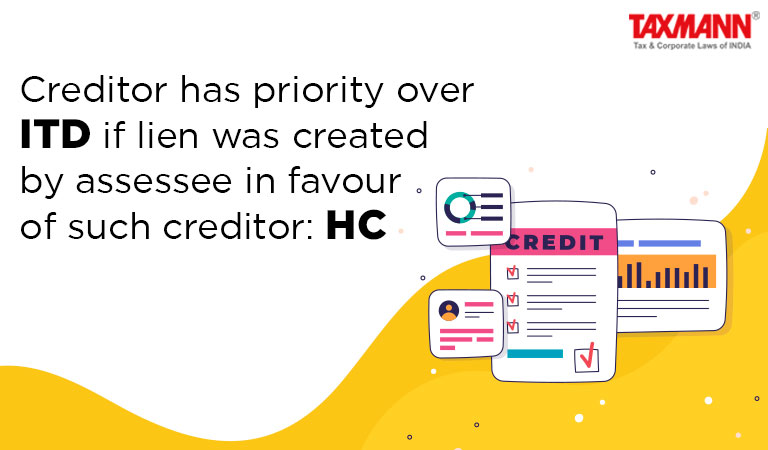Creditor has priority over ITD if lien was created by assessee in favour of such creditor: HC
- News|Blog|Income Tax|
- 2 Min Read
- By Taxmann
- |
- Last Updated on 5 November, 2022

Case Details: IFCI Factors Ltd. v. Bank of India - [2022] 143 taxmann.com 313 (Delhi)
Judiciary and Counsel Details
-
- Amit Bansal, J.
- Anupam Srivastava, Dhairya Gupta & Vashu Misra, Advs. for the Appellant.
- Ms Akanksha Das, Sanjay Kumar & Ms E. Kadiayan, Advs. for the Respondent.
Facts of the Case
Plaintiff-company was engaged in the business of providing financial services. The assessee-bank acquired some financial services from the plaintiff and placed a sum of money in Fixed Deposit Receipt (FDR) with the Bank in the name of Plaintiff. Assessee confirmed that lien had been created in favour of plaintiff-company.
After a period of time, plaintiff-company requested the assessee for encashment of FDR. Assessee denied on the claim that a notice was issued by the Income-tax Department under section 226 and the encashment of such FDR will require a No Objection Certificate (NOC) from the Income-tax Department.
Aggrieved by the assessee’s rejection, the plaintiff-company filed a writ petition before the Delhi High Court.
High Court Held
The Delhi High Court held that the preferential right of recovery of the Income Tax Department is confined only to ordinary or unsecured creditor and not secured creditor. Since the confirmation of lien against the FDRs was made before the issuance of recovery notice by Income Tax Department, it makes plaintiff a secured creditor and the plaintiff’s rights must be given preference over department’s rights.
Therefore, plaintiff-company would be entitled to amounts under said FDR.
List of Cases Reviewed
-
- Stock Exchange v. V.S. Kandalgaonkar [2015] 2 SCC 1 (para 17) followed.
List of Cases Referred to
-
- Stock Exchange v. V.S. Kandalgaonkar [2015] 2 SCC 1 (para 16).
Disclaimer: The content/information published on the website is only for general information of the user and shall not be construed as legal advice. While the Taxmann has exercised reasonable efforts to ensure the veracity of information/content published, Taxmann shall be under no liability in any manner whatsoever for incorrect information, if any.

Taxmann Publications has a dedicated in-house Research & Editorial Team. This team consists of a team of Chartered Accountants, Company Secretaries, and Lawyers. This team works under the guidance and supervision of editor-in-chief Mr Rakesh Bhargava.
The Research and Editorial Team is responsible for developing reliable and accurate content for the readers. The team follows the six-sigma approach to achieve the benchmark of zero error in its publications and research platforms. The team ensures that the following publication guidelines are thoroughly followed while developing the content:
- The statutory material is obtained only from the authorized and reliable sources
- All the latest developments in the judicial and legislative fields are covered
- Prepare the analytical write-ups on current, controversial, and important issues to help the readers to understand the concept and its implications
- Every content published by Taxmann is complete, accurate and lucid
- All evidence-based statements are supported with proper reference to Section, Circular No., Notification No. or citations
- The golden rules of grammar, style and consistency are thoroughly followed
- Font and size that’s easy to read and remain consistent across all imprint and digital publications are applied



 CA | CS | CMA
CA | CS | CMA
